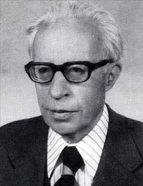

The poor research and scientific work in Portugal reflects the insufficiency of the means, and, above all, the feeble methodological support for the practice of psychology. The pedagogical advantage of this approach becomes clear, on denouncing the lack of an educational strategy: it is the school that must adapt itself to the individual, and not the contrary, as occurs in official, normative systems of public instruction, ‘stateocratic’ as he calls them. The concrete singularity of the individual — at the point, between the two craters of War, when the historic imposition of holism and of organic ‘totalities’ most belittles or supresses the individual — persists at the kernel of the problem, not giving in to reassuring abstractions, at the same time that diachronic excursions, mostly in conceptual historiography or the history of ideas, frame ‘pure theory’. In summary, it is the capture of temporality as the milestone of the humanus that he treats in most detail: the epistemic vis followed validates both the historical animal as Subject and the historic hue of the transdisciplinary complex — which Sílvio Lima practises in a pioneering way — of humanistic studies. In other words, only History (and especially the History of ideas) as an explicative essay and a scientific discipline, in close dialogue with Philosophy, can confederate the plurilateral and multiple dialogue of the different social sciences. Magister vitae.
d) In all of this, Sílvio Lima demonstrates how the admission of the criteria of positivity (the attention to quantitative data obtained from real life, elaborated qualitatively according to the interpretative method of J. de Carvalho) is distinguishable from positivist prejudices. While admiring him as one of the theoretical constructors of Modernity, the cutting criticism that he employs, in following the historical reception in Portugal of the author of Course in Positivist Philosophy, of his absurd negation of the psychological dimension to the gnosiological problem, his denial of the introspective moment, accusing him of physiological reductionism and a rejection of the subjective dimension of knowledge (offspring of ‘dogmatic psychological objectification’, idem, p. 1529 ff), illuminates Sílvio Lima’s own historiography, and his way of thinking about the historical being, expelling also the sociological objectification where the endo-structure of the Being is nullified ‘as a scholastic-metaphysical nothing’, fruit of the ‘dictatorial annulation of “interiority”’ (idem, p. 1531). This is of some relevance, as the admission of such suppositions would lead to the naturalist objectification of the fact (including the historical fact), without acknowledging that this is already a product of earlier theoretical elaboration that expresses, frames, describes, analyses and interprets it.
